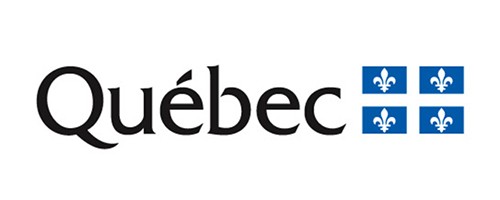Original Article (French only) : La Voix du Sud
Polite in his approach, André Amyot, Kerry’s Vice-President, Operations, didn’t want to place the blame solely on the former mayor of the locality, Denise Dulac, who left her position on September 15, preferring to talk about the positive outcome. “Now we can move on to other things. Things evolved quickly after a successful meeting on September 4, in which Dulac participated. We of course would have liked the project to be carried out quicker. The important thing is that it secures the future of the plant in Sainte-Claire.”
The Sainte-Claire municipal council agreed to a 30% involvement in the Kerry project. The company has been looking to obtain more drinking water from the municipality with the goal of ensuring its production and supporting both its growth and its future development.
Plant Director Jimmy Chabot and Vice-President, Operations André Amyot are pleased that a positive conclusion has finally been reached.
Amyot admits to having delayed commenting on the municipal council’s decision to move forward, preferring to leave it to citizens to judge for themselves. He felt, however, that the people of Sainte-Claire would generally support the plan. “We felt the acceptance not only in the community but also in the region’s business community, where we felt a sense of appreciation, which naturally made us happy. That’s why we have always been involved socially.”
For Plant Director Jimmy Chabot, the announcement has clearly brought a sense of security internally. “It relieves some anxiety for the people on site. Even though we are considered essential, the future of the Sainte-Claire plant was a constant subject of discussion internally, particularly this summer.”
Amyot recalls that the company has always been willing to do its part. He cites as an example the portion of the bill it will have to assume. “The municipality will increase its capacity by 1,500 cubic metres of water per week and we will take about 900 cubic metres, which is about 60% of the volume. Our part of the bill will be 70%.”
Development and governmental support prospects
Hopes for the plant are now high, according to its main stakeholders, with the possible increase in water capacity. A new silo has appeared in the last few days—proof of the company’s constant investment in its Sainte-Claire plant.
“We have just secured 300 jobs. Because of the pandemic, we have many new clients who are choosing to produce in Canada rather than the United States because of the border closure. We have the technology in Sainte-Claire, and we take advantage of it. We should reach the full capacity of the plant at the same time as the arrival of the new volume of water,” mentions Chabot, who estimates that it will take nearly a year from today to see the modernized facility in place.
Incidentally, the company will also have the support of the Quebec government in its projects, since a contribution via Investissement Québec, up to a maximum of $1.5M, has just been confirmed. This will be part of a multimillion-dollar investment project by the company to improve and increase the productivity of its plant.
“The Kerry company must be allowed to carry out its development project and ensure that it has a sufficient supply of water to meet its needs. I would also like to take this opportunity to applaud the determination of the Sainte-Claire elected officials for having created winning conditions to ensure the continuity of the Kerry plant, which is a crucial member of the ‘Bellechassoise’ agri-food industry,” stressed Bellechasse Deputy Stéphanie Lachance.
“When I took over the plant, I wanted it to expand. We’re getting more involved in the community with that in mind. It’s rare for companies to grow during a pandemic, but that’s the case with us. We’ve invested nearly $3.5M over the past year to increase production capacity, and even within the plant at the beginning of the pandemic, to encourage employees to distance themselves from one other,” says Jimmy Chabot, adding that the company could potentially gain an additional 25% in terms of production and around thirty additional jobs over a three-year period.
Lastly, André Amyot confirms that the coming of a complementary company to the plant, which had been discussed before, is still on the agenda. “Settling the case will help us secure the production volume and invest even more. Complementary business investments are still part of it. It’s true that the delays in the water case have delayed all this.”




